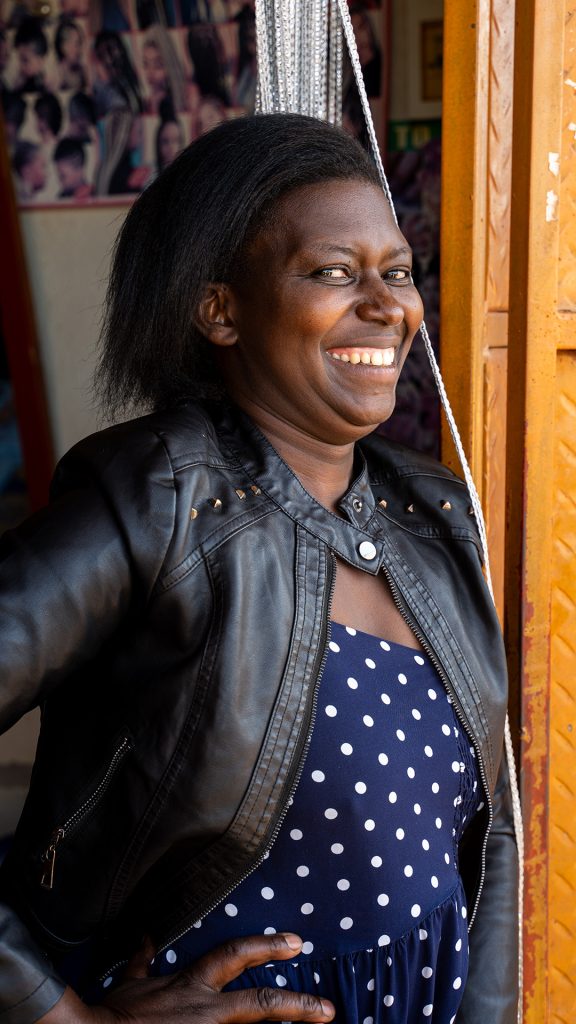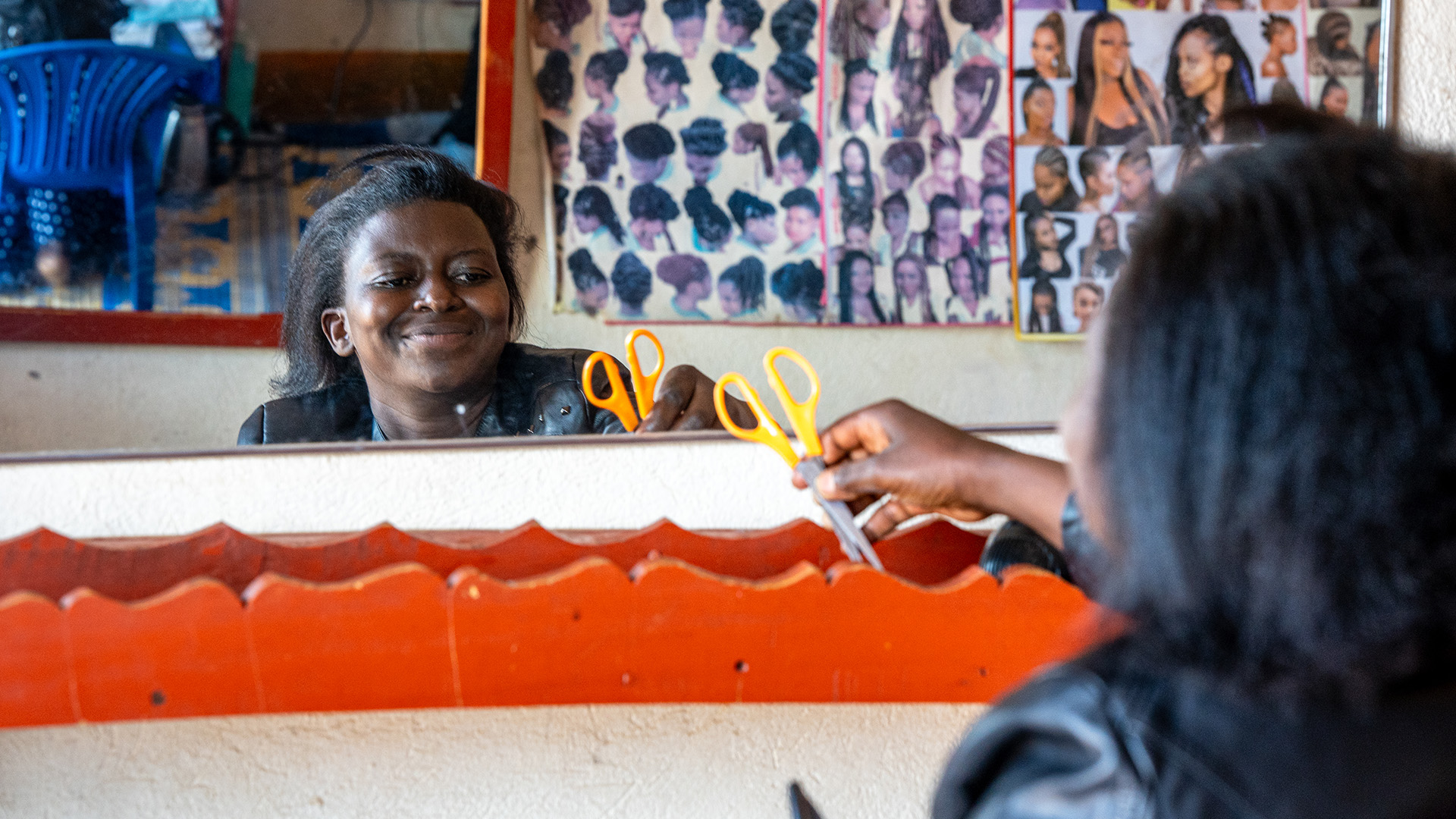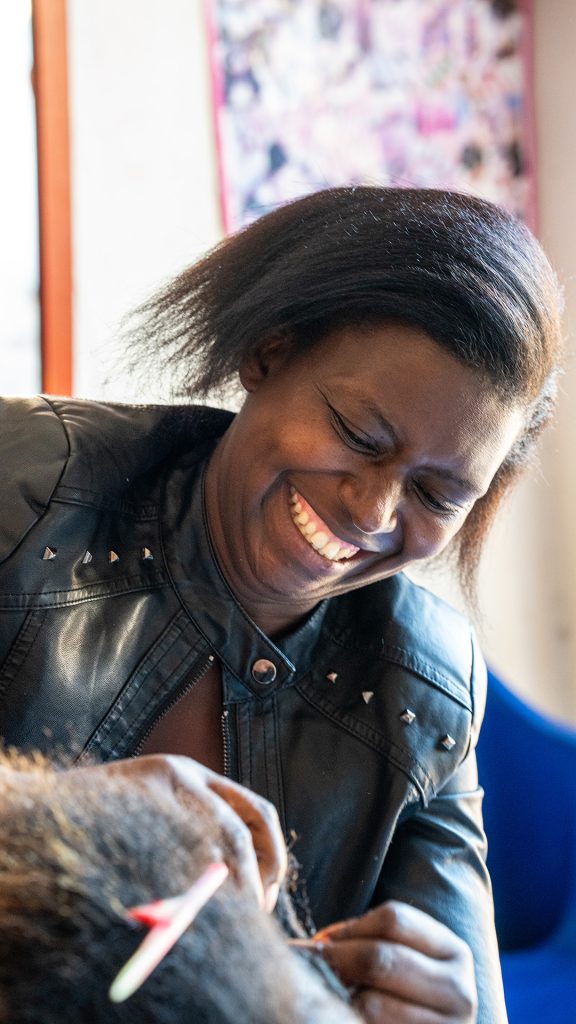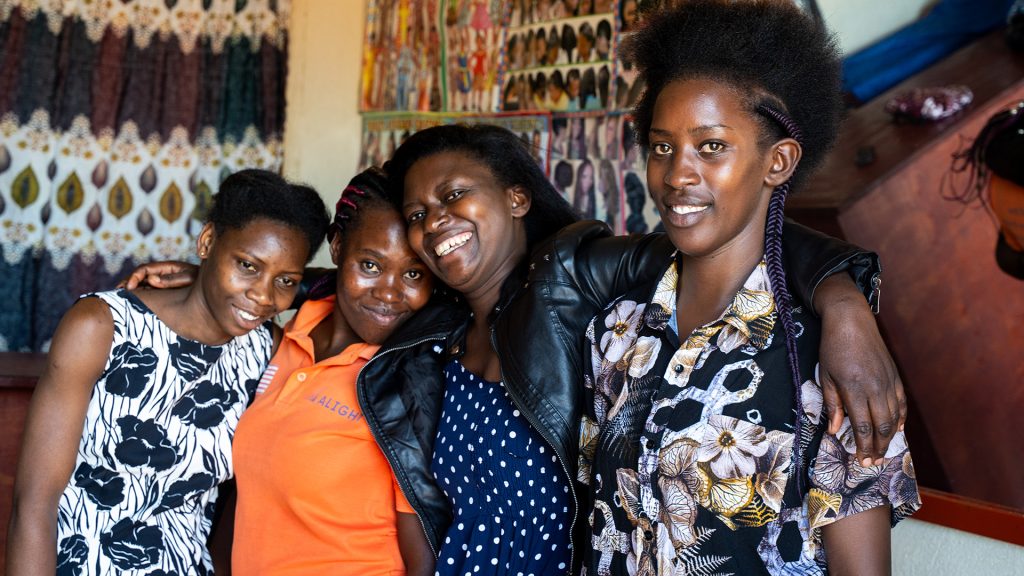Braiding hope and healing: Mary’s new beginning in Uganda
When Mary fled the Democratic Republic of Congo (DRC) for Rwamwanja Refugee Settlement in Uganda she was in for tough times. She did not have enough money for food or clothes for her family, and the stress of the situation induced headaches radiating from an old head wound. But after she took a course in hairdressing she was able to start her own business and the headaches disappeared.
“I felt like I was in a deep hole,” Dushimana Mary Gorette recalls. “I couldn’t feed my child, I had no job, and the pain in my head never stopped,” she says and refers to recurring headaches she had, radiating from the spot where she was hit with the butt of a gun during the conflict in DRC.
Mary arrived in Uganda as a refugee, carrying nothing but uncertainty, pain, and the responsibility of caring for a young child. The old head wound acted up regularly, and the daily stress of survival in a new country only worsened her condition.
“The headaches became part of my life. When we came to Uganda, things got worse. I used to sit and cry, wondering what we would eat and how I would take care of my family. The more I worried, the worse the headaches were.”
Today, Mary is not just surviving, she is thriving. From her modest hair salon in Kataryebwa town, within Rwamwanja Refugee Settlement, she is building a brighter future for her family, teaching others, and proving that with the right support, a fresh start is possible.

Her turning point came when she heard from friends about a free skills training programme offered by Finn Church Aid (FCA) under the Refugee and Host Community Youth Empowerment and Transformation Initiative (RETI). Sceptical, she walked to the FCA office to confirm the information.
Mary has come a long way from the stress-induced headaches. Video: Björn Udd / FCA
“When I found out it actually was free, I told myself this is the chance I’ve been waiting for. I had always wanted to learn a skill and work with my hands.”
Mary successfully enrolled in the programme and was paired with Madam Anne, a local Ugandan artisan, for hands-on training in hairdressing.
Saving money to start a business
“Madam Anne is younger than me, but she taught me everything,” Mary says. “How to braid, wash, and care for hair. After the four months of training, she gave me my first tools which were scissors, thread, and a needle, and told me to go and use my skill.”

With her training complete, Mary began receiving home-based braiding jobs through Madam Anne. She saved every shilling she earned and, after just two months, took a bold step and started her own salon. With 400,000 Ugandan shillings (112 US dollars) in savings and a small loan from her husband, she opened a modest shop in Kataryebwa town.
“I didn’t have money to buy braids, hair oils, and other materials,” she says. “But Madam Anne took me to her supplier and asked them to trust me. They gave me items on credit, and I later paid it all back.”
Today, Mary earns up to 100,000 shillings (28 US dollars) on a good day. She pays school fees for her eldest child, contributes to household expenses, and recently replaced the tarpaulin roof on their home with iron sheets.
“My husband is proud of me,” she says. “He sees I’m not just sitting around; I’m building something.”

Mary’s transformation has not only improved her income but also her health and outlook on life.
“I don’t get headaches like before,” she shares. “Now I wake up knowing my children will eat. I can plan. I have hope.”
Paying it forward
Mary is now passing on her skills. She is training her sister and several young women in the community.
“They come after garden work in the afternoon. I teach them for free, but they buy the practice materials. One day, I hope they’ll also have their own businesses.”

To keep improving, Mary uses her smartphone to watch hairdressing tutorials online.
“That’s how I stay updated. I love seeing new fashion and trying it out in the salon.”
Mary credits the RETI project and FCA for transforming her life.
“They brought this opportunity and connected me to Madam Anne. She treats me like a sister. Without them, I don’t know where I’d be.”
Text: Linda Kabuzire
About RETI
The Refugee and Host Community Youth Empowerment and Transformation Initiative (RETI) equips refugee and host community youth in Uganda with the skills needed to build sustainable futures. Finn Church Aid partners with eight other organizations in a consortium led by Muni University, to implement the program in partnership with the Mastercard Foundation. The program aims to train 100,000 youth by 2027, 60% female, 70% refugees, and 3% persons with disabilities; and transition at least 70,000 into dignified employment.